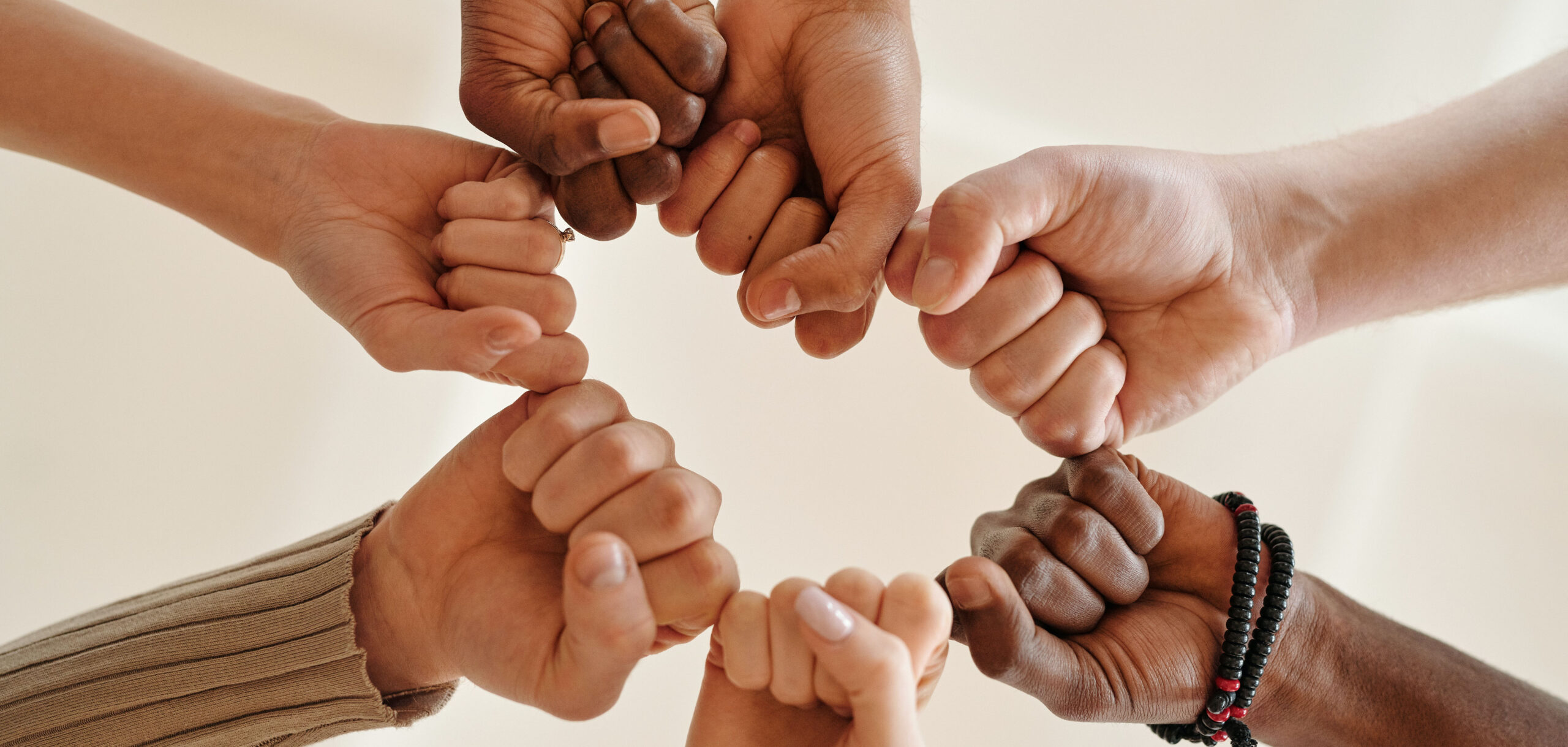The idea of Diversity, Equality, and Inclusion (DEI) has emerged as a vital factor in shaping the culture and success of organizations across the globe. As an NGO, its main goal is to bring positive change to the world through equal treatment and opportunity. In this regard, NGOs need to address various societal challenges and issues. To fulfill their mission and create a positive impact, NGOs must recognize the urgency of integrating DEI principles as their core values, strategies, and practice.

Why DEI Matters in any Organization, especially NGOs
DEI is firmly rooted in the principles of human rights. DEI sets an example for offering equal opportunities to anyone, including nationality, gender and gender identity, race, religion, ethnicity, age, sexual orientation, disability, and educational background. It plays a key role in nonprofits and the development sector because it is the cornerstone of creating a just and equitable world. NGOs have the mission of addressing societal challenges and various issues, so the practice of DEI helps the organization set an example and make a difference in society. In the development sector, the pursuit of DEI is not just an ethical imperative but a strategic necessity for driving lasting transformation in the world.
First, it brings people together from diverse backgrounds, which leads to the development of new ideas and solutions. Each individual has their unique ideas, to foster creativity and innovation in the team. Organizations that prioritize DEI are more likely to attract a diverse range of talent. As a result, they can tap into a broader pool of skills and expertise, strengthening their creative capabilities and positioning themselves as industry leaders. DEI is important for creativity, enabling organizations to thrive in a rapidly changing and interconnected world. Enhancing the overall comfort of the work environment leads to improved team dynamics, a healthy working environment, and greater productivity.
Second, NGOs with no DEI policy are referred to as non-inclusive organizations, which shows acts of discrimination and bias. In the UK, it is against the law (UK Equality Act 2010) to discriminate against anyone because of age, gender, caste, religion, or any other characteristic that is against the law. Many development organizations have opted for the practice of DEI to create harmony and equality in the world. From recruiting staff to implementing grant funding policies, the DEI has gradually immersed itself in the development sector and played a significant role.
Some examples of DEI policy in development organizations
The World Bank commits to recruiting new staff with a policy of Diversity and Inclusion. They are a highly diverse global workforce, including more than 170 different nationalities. This is part of their commitment to eradicate discrimination, racism, injustice, exclusion, and inequality, within the World Bank Group and in the countries they serve.
For UNDP it acts as a core principle and emphasizes the importance of fostering diversity and inclusion to empower all personnel to contribute effectively to the organization’s mission.
IOM, welcomes applications from qualified professionals, irrespective of their race, religion, skin color, nationality, age, disability status, ancestry, sex, sexual orientation, gender identity or expression, marital status, family structure, mental health status, or any other characteristic. Their policies encourage a workplace free from discrimination and any form of harassment.
USAID is dedicated to fostering a workplace that embraces diversity, equity, and inclusion, ensuring that all individuals have the chance to thrive and succeed.
These organizations value the role of DEI, so while funding programs, they certainly see if the NGOs have practiced the DEI or not. Practicing DEI shows that the NGO is committed to offering a chance to every individual of different backgrounds. NGOs aim to reach as many people as possible. NGOs can significantly broaden their reach and increase their chances of success in fundraising by having a diverse team, equitable practices, and inclusive messaging.
Foundations that include DEI in their funding policies
Wellcome Trust: The Wellcome Trust is committed to encouraging equity, diversity, and inclusion among all people working with them or involved in Wellcome-funded activities. The trust wants all of their access to funding to be open and accessible to anyone eligible under the terms of their schemes and calls.
Open Society Foundations: The Open Society Foundations ensure in their grant-making strategies that communities should never be excluded from resources. So the foundations strictly follow the DEI’s funding policies.
Ford Foundation: DEI stands as the core mission of the Ford Foundation. The foundation provides extensive support to diverse individuals and organizations engaged in the DEI (Diversity, Equity, and Inclusion) field. They actively assess their grantmaking strategies to gain a deeper understanding and to foster a transformation in the distribution of funding power, and collaborate with partners that understand the intersections of social justice and the need to democratize philanthropy.
Garfield Weston Foundation: The Garfield Weston Foundation strives to ensure that every eligible organization has an equitable opportunity to apply to the Foundation for funds. The foundation ensures that its funding reflects the huge range of diversity within the UK’s society.
Rockefeller Brothers Fund: The Rockefeller Brothers Fund (RBF) is committed to becoming an anti-racist, anti-sexist institution where each person, in their uniqueness, knows they are valued and belong. Diversity, equity, inclusion, and belonging are critical to their mission of advancing a more just, sustainable, and peaceful world. In 2020, the foundation established the Racial Justice Initiative (RJI) with a commitment of $10 million to make catalytic grants that help organizations envision, advocate for, and implement structural change that advances racial justice in the United States.
Bill & Melinda Gates Foundation: In 2021, the Bill and Melinda Gates Foundation developed their first diversity, equity, and inclusion (DEI) strategic framework, which lays out their plans for achieving transformational outcomes through increased diversity of talent, equitable practices, and an inclusive culture. The framework aims for systemic change across four pillars: Leadership Accountability, Talent, Culture, and Partnerships and Voice.
UKRI: UKRI’s “Expectations for equality, diversity, and inclusion”, aim to embed equality, diversity, and inclusion (EDI) in all that they do. UKRI seeks to practice diversity, equity, and inclusion while funding grants.
Chan Zuckerberg Initiative: Chan Zuckerberg Initiative (CZI), is committed to doing its part to dismantle systemic racism and inequality and to champion equitable opportunities—both in their external work and internally at CZI. The CZI allocates funding to a Racial Equity Grant Program, aimed at providing support to organizations striving to promote a fairer, more inclusive, and equitable world.
Overall, the integration of Diversity, Equity, and Inclusion (DEI) principles has become a crucial aspect of development organizations’ missions and practices worldwide. DEI is deeply rooted in human rights and fosters equal opportunities for individuals of diverse backgrounds, ensuring a just and equitable world. NGOs that prioritize DEI benefit from a more diverse talent pool, leading to increased creativity, innovation, and productivity. Moreover, the adoption of DEI policies and practices in NGOs is essential not only from an ethical standpoint but also as a strategic necessity for driving lasting transformation in society. Many prominent organizations and foundations actively promote DEI and consider it a critical factor in their grant-making decisions. By embracing DEI, NGOs can significantly expand their reach and impact, ultimately contributing to a more inclusive and equitable world.


Role of Advisory Boards and Board Members in NGO - Philantropia
[…] boards support NGOs in decision-making. Their decisions are often taken on board as they are critical and important. […]